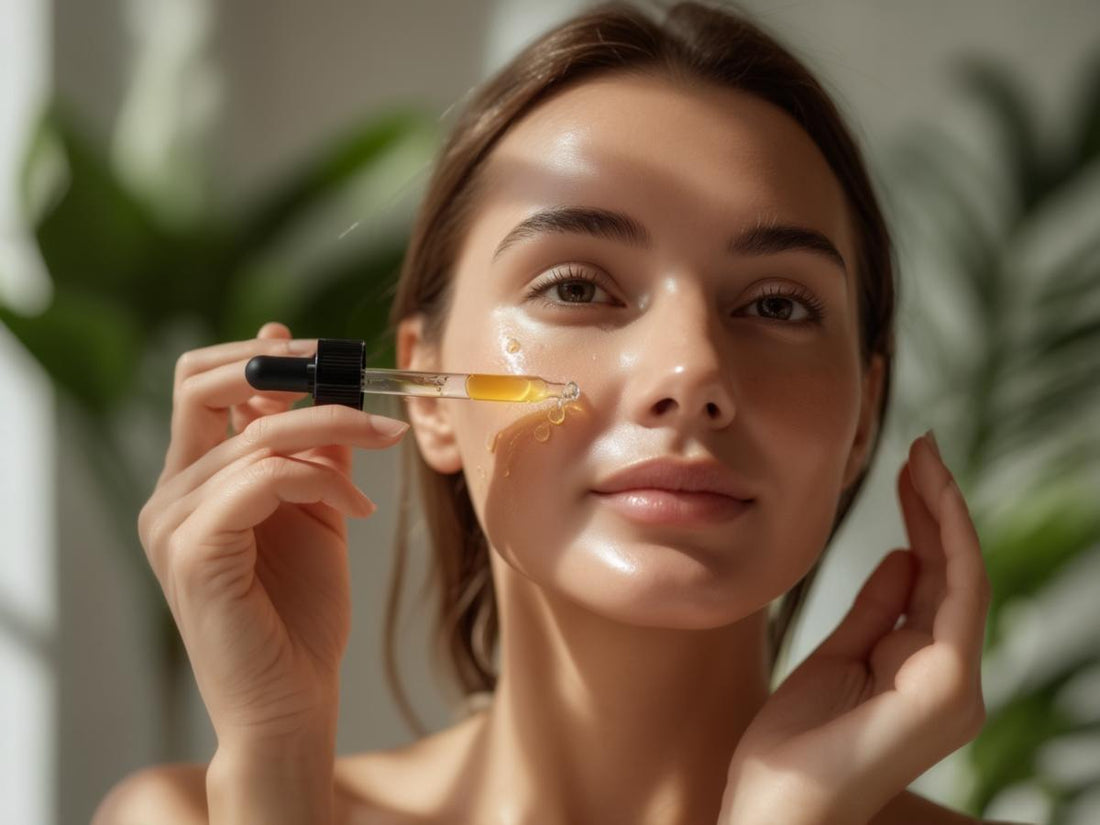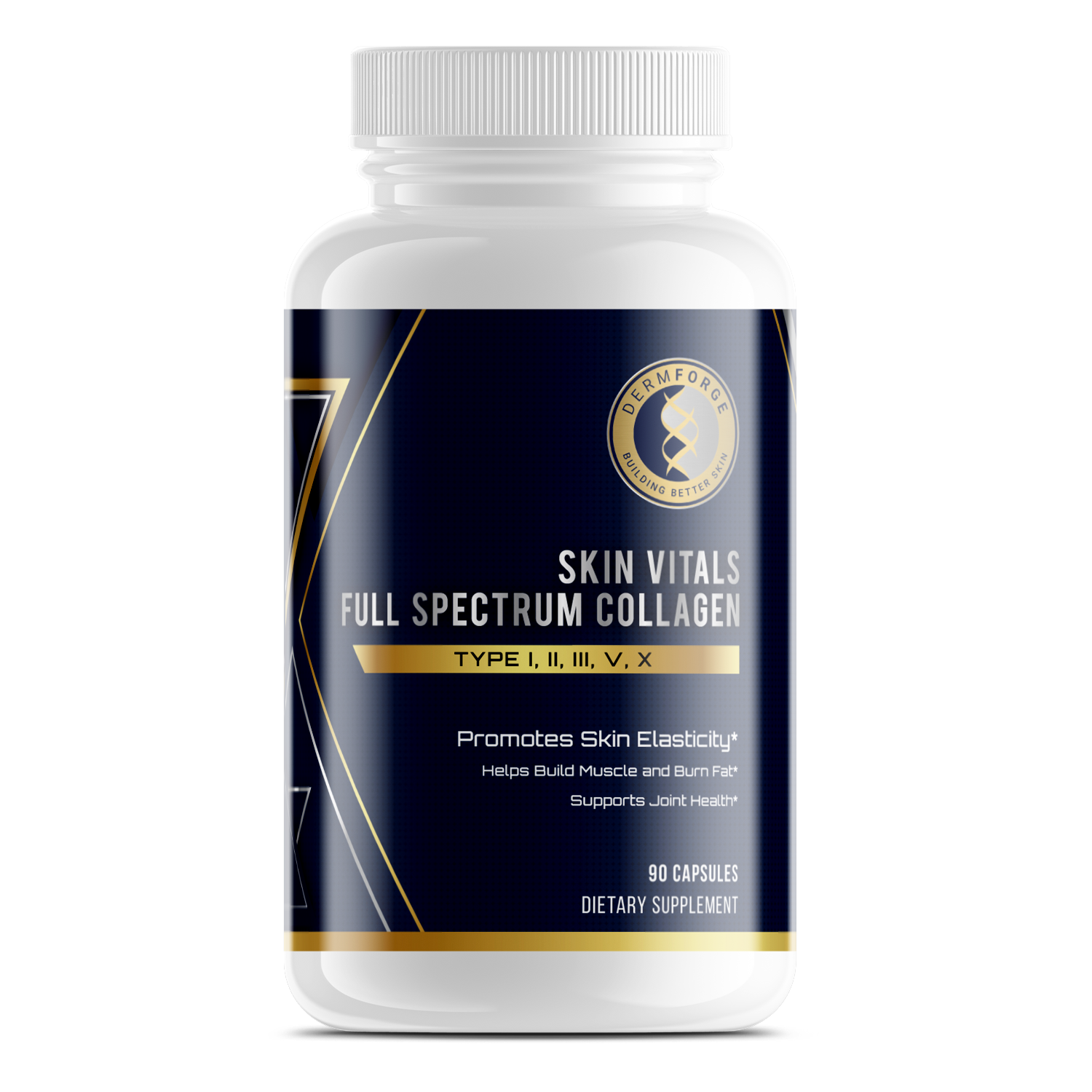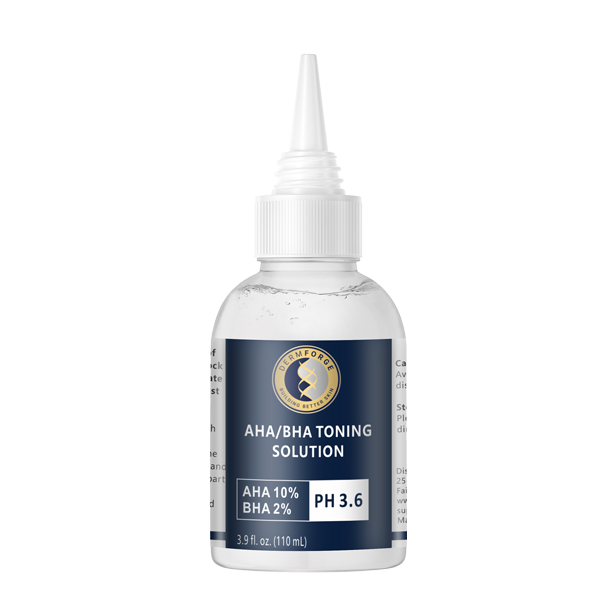Peptide serums have emerged as a cornerstone in modern skincare, offering a multitude of benefits for skin health. By incorporating peptides into your routine, you can effectively address common skin concerns and enhance overall skin vitality.
One of the primary advantages of peptide serums is their ability to reduce fine lines and wrinkles. Peptides stimulate collagen production, a protein essential for maintaining skin's firmness and elasticity. As collagen levels increase, the skin becomes plumper and smoother, diminishing the appearance of wrinkles. This process contributes significantly to boosting skin elasticity, resulting in a more youthful complexion.
In addition to anti-aging effects, peptide serums enhance skin hydration. They strengthen the skin barrier, allowing it to retain moisture more effectively. This improved barrier function not only keeps the skin hydrated but also protects against environmental aggressors. Well-hydrated skin appears more supple and radiant, further contributing to a healthy appearance.
Moreover, peptides support long-term skin firmness by promoting continuous collagen synthesis. Regular use of peptide serums ensures sustained collagen production, which is vital for maintaining the skin's structural integrity. Over time, this leads to firmer and more resilient skin, effectively combating signs of aging and sagging.
Incorporating a peptide serum into your skincare regimen offers comprehensive benefits, from reducing wrinkles to enhancing hydration and firmness. These attributes make peptide serums a valuable addition for anyone seeking to improve their skin's health and appearance.
What Are Peptides and How Do They Improve Skin Elasticity?
Peptides are short chains of amino acids that serve as building blocks for proteins like collagen and elastin, which are essential for maintaining skin's structure and elasticity. When applied topically, peptides stimulate the skin's natural production of these proteins, leading to a firmer and more resilient complexion. This stimulation helps counteract the natural decline in collagen and elastin that occurs with age, thereby boosting skin elasticity.
Incorporating peptide-rich products into your skincare routine can lead to noticeable improvements in skin firmness and texture. By promoting collagen and elastin synthesis, peptides enhance the skin's ability to retain its shape and resist sagging. This results in a more youthful appearance, as the skin becomes better equipped to maintain its structure against the effects of aging and environmental stressors.
Furthermore, peptides support the skin's barrier function, enhancing moisture retention and overall skin health. This improved hydration contributes to a plumper, more supple appearance, further aiding in boosting skin elasticity. Regular use of peptide-infused skincare products can, therefore, be a valuable strategy in maintaining a youthful and resilient complexion.
Benefits of Peptide Serum for Skin Health
Peptide serums offer multiple benefits for skin health, making them a valuable addition to your skincare routine. One significant advantage is their ability to reduce fine lines and wrinkles. By stimulating collagen production, peptides help maintain skin's firmness and elasticity, leading to a more youthful appearance. Regular use of peptide serums can result in smoother skin texture and diminished wrinkle depth.
Additionally, peptide serums enhance skin hydration and strengthen the skin barrier. A robust skin barrier retains moisture effectively, preventing dryness and irritation. This improved hydration contributes to a plumper, healthier complexion. Moreover, a fortified skin barrier protects against environmental aggressors, reducing the risk of inflammation and sensitivity.
Furthermore, peptides support ongoing collagen synthesis, promoting long-term skin firmness. Consistent application of peptide serums aids in maintaining skin's structural integrity, preventing sagging over time. This continuous support is essential for boosting skin elasticity and achieving a resilient, youthful look. Incorporating peptide serums into your daily regimen can lead to sustained improvements in skin health and appearance.
How to Choose the Best Peptide Serum for Your Skin Type
Peptide serums have become a cornerstone in skincare, offering benefits like reducing fine lines and boosting skin elasticity. However, selecting the right peptide serum requires understanding various peptide types and matching them to your skin's needs.
Signal peptides, for instance, prompt skin cells to produce collagen and elastin, enhancing firmness. Carrier peptides transport essential minerals, aiding in collagen synthesis and skin repair. Enzyme-inhibitor peptides prevent the breakdown of collagen and elastin, preserving skin's structural integrity. Neurotransmitter-inhibiting peptides relax facial muscles, reducing expression lines. Recognizing these distinctions helps you choose a serum that aligns with your skin goals.
When selecting a peptide serum, consider additional ingredients that complement peptides. Hyaluronic acid, for example, provides hydration, enhancing the plumping effect of peptides. Niacinamide improves skin tone and strengthens the barrier function. Antioxidants like vitamin C protect against environmental damage, working synergistically with peptides to promote overall skin health.
Your skin type also plays a crucial role in serum selection. For oily skin, opt for lightweight, non-comedogenic formulations that won't clog pores. Dry skin benefits from serums with added moisturizing agents to combat dryness. If you have sensitive skin, choose serums with soothing ingredients to minimize potential irritation. Tailoring your choice to your skin's specific needs ensures optimal results.
Incorporating a peptide serum into your skincare routine can be transformative. By understanding peptide types, complementary ingredients, and your skin's unique requirements, you can select a product that effectively supports your skin's health and appearance.
Best Practices for Applying Peptide Serum
Incorporating peptide serums into your skincare routine can significantly enhance skin health by boosting collagen production, leading to improved elasticity and firmness. To maximize these benefits, it's essential to apply peptide serums correctly and avoid common mistakes.
Begin by cleansing your face thoroughly to remove impurities. This prepares your skin for better absorption of the serum. After cleansing, apply a toner to balance your skin's pH levels, which can further enhance serum penetration. Next, dispense 2-3 drops of the peptide serum onto your fingertips and gently press it into your skin, covering your face and neck. Avoid rubbing or tugging, as gentle application ensures optimal absorption. After the serum has absorbed, follow up with a moisturizer to lock in hydration and create a protective barrier. In the morning, always apply sunscreen as the final step to protect your skin from UV damage.
Consistency is key when using peptide serums. For most formulations, applying the serum twice daily—morning and night—yields the best results. However, it's advisable to follow the specific usage instructions provided with your product, as formulations can vary.
To maximize the effectiveness of your peptide serum, avoid combining it with highly active ingredients like retinol or strong acids in the same application, as they may interfere with the serum's efficacy. Additionally, overusing the serum can lead to skin irritation or a sticky feeling; adhere to the recommended amount to prevent this. Skipping sunscreen during the day can also diminish the protective benefits peptides offer, so ensure you incorporate sun protection into your routine.
By following these best practices and being mindful of common pitfalls, you can effectively incorporate peptide serums into your skincare regimen, promoting healthier, more resilient skin.
Combining Peptides with Other Skincare Ingredients
Combining peptides with other skincare ingredients can enhance their benefits, but it's important to know which combinations are effective and which to avoid. Peptides, known for boosting skin elasticity, work well with several ingredients. For instance, pairing peptides with hyaluronic acid enhances skin hydration, leading to a plumper appearance. Additionally, combining peptides with antioxidants like vitamin C offers protection against free radicals, promoting a youthful complexion.
Moreover, peptides and retinol can be used together to improve skin texture and firmness. Retinol accelerates skin cell turnover, while peptides support collagen production, resulting in smoother skin. However, introducing retinol gradually and monitoring skin response is advisable to minimize potential irritation.
Conversely, certain combinations should be avoided. Mixing peptides with strong exfoliating acids like salicylic acid or glycolic acid can reduce the effectiveness of peptides. These acids may destabilize peptide structures, diminishing their skin-repairing benefits. To prevent this, use exfoliating acids and peptide products at different times, such as acids in the morning and peptides in the evening.
Understanding these combinations allows you to maximize the benefits of peptides in your skincare routine, promoting healthier, more resilient skin.
How Long Does It Take to See Results from Peptide Serum?
When introducing peptides into your skincare routine, patience and consistency are key. Typically, noticeable improvements, such as reduced fine lines and enhanced firmness, emerge after 6 to 12 weeks of regular use. This timeframe aligns with the skin's natural regeneration cycle, which slows with age.
Several factors influence the effectiveness of peptide serums. The specific peptides used and their concentrations play a significant role. Signal peptides, for instance, stimulate collagen production, leading to firmer skin. Additionally, the product's formulation affects absorption and stability, impacting results. Individual skin characteristics, such as type, age, and overall health, also determine how quickly benefits become visible.
To maintain and enhance results, apply the peptide serum consistently, typically twice daily. Pairing it with a good moisturizer can lock in hydration and support the skin barrier. Protecting your skin from UV damage by using sunscreen is also crucial, as sun exposure can counteract the benefits of peptides. Adopting a healthy lifestyle, including a balanced diet and adequate hydration, further supports skin health.
In summary, while peptide serums offer promising benefits for boosting skin elasticity, they require consistent application and time. Understanding the factors that influence their effectiveness can help you set realistic expectations and achieve optimal results.
Conclusion
Peptide serums have become a cornerstone in skincare, celebrated for their role in boosting skin elasticity. These formulations harness short chains of amino acids—peptides—that signal the skin to produce essential proteins like collagen and elastin. Incorporating a peptide serum into your routine can lead to a firmer, more resilient complexion.
One notable example is G.M. Collin's Bota-Peptides Serum, credited by makeup artist Jo Strettell for enhancing skin smoothness and plumpness. This serum exemplifies how peptides can effectively reduce fine lines and wrinkles, contributing to a youthful appearance.
When selecting a peptide serum, consider formulations that include additional beneficial ingredients. Hyaluronic acid, for instance, enhances hydration, while antioxidants protect against environmental stressors. Products like The Ordinary's Multi-Peptide + Copper Peptides 1% Serum combine peptides with such ingredients to improve skin firmness and overall health.
Consistency is key to achieving desired results with peptide serums. Regular application, as directed, supports ongoing collagen production and skin repair processes. Over time, this leads to noticeable improvements in skin elasticity and texture.
Incorporating peptide serums into your skincare routine offers a targeted approach to maintaining youthful, firm skin. By stimulating collagen and elastin production, these serums play a vital role in boosting skin elasticity and overall skin health.






